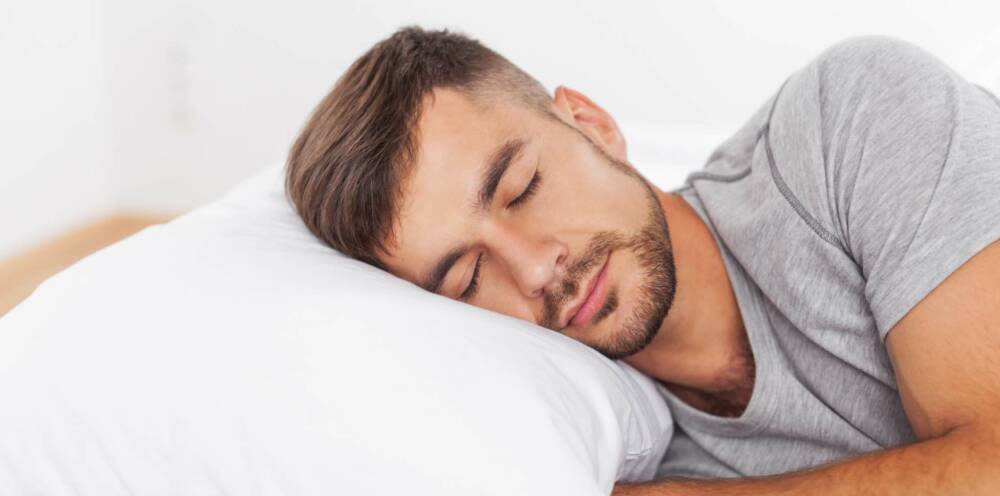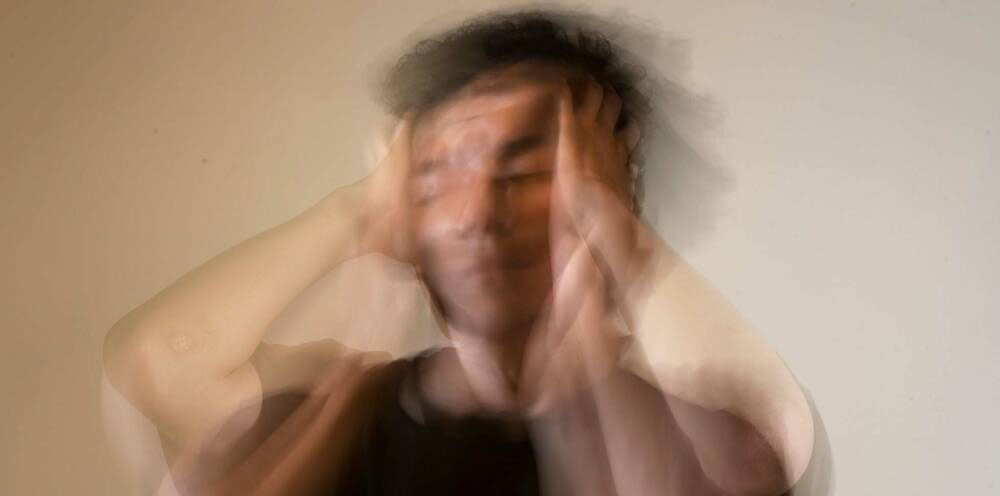These are problems that affect an increasing number of people around the world. Regardless of age, lifestyle or health condition, many people face a drop in energy and feelings of exhaustion on a daily basis. Rather than putting the problem to one side and hoping it will ‘go away on its own’, it is worth considering the causes of this condition. In this article, we will discuss the most common causes of fatigue and lethargy and suggest ways to remedy them.
1. Lack of adequate quantity and quality of sleep

How much sleep do we need?
The first and most obvious cause of fatigue is sleep deprivation. According to expert recommendations, an adult needs between 7 and 9 hours of sleep per night. If we sleep less, our body does not have enough time to regenerate, leading to feelings of sleepiness during the day.
Sleep quality problems
However, it is not just the quantity of sleep that matters – quality is also key. People who have problems with intermittent sleep, suffer from sleep apnoea or struggle to wake up frequently during the night can feel tired even after a long time in bed. Such people do not go through all stages of sleep, including the all-important REM phase, which is responsible for full recovery of the body and mind.
2. Stress and emotional problems

How does stress affect energy levels?
One of the biggest modern culprits of fatigue and lethargy is stress. When we are stressed, our body produces hormones such as cortisol to help us cope with difficult situations in the short term. However, prolonged stress puts our body on alert at all times, leading to physical and mental exhaustion.
Depression and anxiety
Lack of energy can also be a symptom of emotional problems such as depression or anxiety disorders. People suffering from depression often feel a lack of energy, and daytime sleepiness is a common symptom of this condition. In such a case, sleep does not provide relief, as the root of the problem lies in the mental state.
3. Poor diet and dehydration

How does diet affect our energy?
What we eat has a direct impact on our energy levels. A diet high in processed foods, fatty meals and high amounts of sugar can lead to temporary spikes in energy, but these are followed by a sharp drop in strength. This effect is known as a ‘sugar crash’, when, after a temporary surge of energy, we feel more tired than before. A plant-based diet can effectively replenish vitamin and mineral deficiencies.
Dehydration
Hydration of the body is an equally important factor. Water is essential for the proper functioning of all metabolic processes in our body. Even slight dehydration can cause sluggishness and problems with concentration.
4. Lack of physical activity

Fatigue and a sedentary lifestyle
Paradoxically, lack of exercise can be one of the main reasons for feeling constantly tired. We have mentioned the effects of physical activity on the body in this article. Our body is designed to move, and a sedentary lifestyle can lead to weakened muscles, a slower metabolism and a general lack of energy. Regular physical activity, even in moderation, such as walking or light exercise, can increase energy levels and improve mood.
Excessive physical activity
On the other hand, excessive exercise, especially without adequate recovery, can lead to overtraining, which can also cause chronic fatigue and decreased energy. It is important to find a balance between exercise and rest.
5. Illnesses and health conditions

Hypothyroidism
One of the most common causes of fatigue is hypothyroidism, a condition in which the thyroid gland does not produce enough hormones. Thyroid hormones are responsible for regulating metabolism, and their deficiency leads to slowed metabolic processes and a feeling of constant fatigue.
Diabetes
Fatigue can also result from untreated or poorly controlled diabetes. High blood sugar levels impair the cells’ ability to absorb glucose, resulting in a lack of energy and general weakness.
Sleep apnoea
Sufferers of sleep apnoea have difficulty breathing during sleep, leading to interrupted sleep. Although they are able to sleep for an adequate number of hours, they do not feel rested because their sleep is ineffective.
Anaemia
Iron deficiency, which leads to anaemia, is another cause of fatigue and lack of energy. Iron is essential for the production of haemoglobin, which transports oxygen to the cells. Low iron levels mean that muscles and tissues do not receive enough oxygen, resulting in a feeling of fatigue.
6. Inappropriate coffee and alcohol drinking habits

Excessive caffeine consumption
Although coffee can temporarily boost energy levels, excessive caffeine consumption can lead to sleep problems, which in the long term exacerbates sluggishness. Caffeine can also disrupt natural sleep cycles, leading to intermittent or shallow sleep.
Alcohol and sleepiness
Alcohol may give the impression that it makes it easier to fall asleep, but it actually disrupts sleep cycles, leading to poorer quality rest. Regular consumption of alcohol before bed can result in feelings of fatigue and weakness upon waking.
7. Hormonal changes

Fatigue and the menstrual cycle
Women may experience feelings of fatigue as a result of hormonal changes associated with the menstrual cycle. Changes in oestrogen and progesterone levels can affect energy levels, as well as sleep quality.
Menopause
Similarly, the menopause is often associated with hot flashes, night sweats and insomnia, which can lead to chronic fatigue and lethargy. Hormonal fluctuations during this period of life can significantly affect mood and energy.
8. Cardiovascular health problems

Heart diseases
Sluggishness can also be a symptom of cardiovascular problems, including heart failure. A heart that is unable to pump blood efficiently delivers less oxygen to the muscles and organs, resulting in fatigue, even with little effort.
Low blood pressure
People with low blood pressure often feel lethargic and tired because their body is unable to deliver sufficient oxygen to the cells. This can lead to feelings of drowsiness and dizziness, especially after standing for long periods of time or standing up quickly.
9. Environmental factors

Inadequate lighting
Inadequate lighting, especially in winter, can affect our diurnal rhythm, leading to daytime sleepiness. In such conditions, our body can produce greater amounts of melatonin, the hormone responsible for sluggishness, resulting in feelings of fatigue even during the day.
Sedentary lifestyle
Working in enclosed spaces, lack of access to fresh air and sitting for long periods of time can also contribute to feelings of exhaustion. Outdoor movement, even a short walk, can increase energy levels and improve mood.
How to deal with chronic fatigue and lethargy?
1. Improving the quality of sleep
The first step in combating a drop in energy is to take care of the quality of your sleep. A regular sleep schedule should be established, caffeine and alcohol should be avoided before bed and a suitable environment for rest should be created, such as a dark, quiet and cool room.
2. A healthy diet and supplementation
A balanced diet, rich in protein, healthy fats and complex carbohydrates, will help keep energy levels steady throughout the day. Also, drinking enough water is key to maintaining wellbeing. In some cases, it is worth considering supplementation with vitamins and minerals, which can support the body to combat feelings of fatigue. Some vitamins can have a quick effect on reducing feelings of sleepiness. Here are some popular supplements:
| Suplement | Korzyści |
|---|---|
| Vitamin D | Supports the immune system and improves mood. |
| Vitamin B12 | It helps with energy production and improves neurological function. |
| Iron | Promotes oxygen transport in the body, which can increase energy. |
3. Regular physical activity
Introducing moderate physical activity such as walking, yoga or swimming into your daily routine can significantly improve your energy levels. It is important to find a form of activity that is enjoyable and does not lead to overtraining.
4. Dealing with stress
Learning relaxation techniques such as meditation, deep breathing or mindfulness practices can help manage stress and improve sleep quality. In some cases, it is also worth considering psychological therapy to better manage emotional challenges.
5. Maintaining healthy habits
Introducing healthy habits into your daily life can make a significant difference to your energy levels. Here are some key points:
Regular meals: Try to eat every 3-4 hours to keep blood sugar levels stable.
Limit alcohol: Excessive alcohol consumption can lead to a weaker body and poorer sleep quality.
Planning breaks: Plan short breaks throughout the day for relaxation and recovery.
6. Consult a doctor
If sluggishness and loss of energy persist despite the introduction of healthy habits, it is a good idea to consult your doctor and get the appropriate tests. This could be a sign of health problems such as hypothyroidism, diabetes or anaemia, which require professional treatment. Symptoms related to a lack of motivation may also indicate apathy, so it is crucial to consult a doctor to find the right ways to improve your
Summary

Lack of energy and chronic fatigue are ailments that can have many causes – from insufficient sleep to stress to serious health problems. To combat this effectively, it is worth ensuring a healthy diet, adequate exercise and regular, quality sleep. In some cases, the help of a doctor may be necessary to help diagnose and treat the underlying causes of chronic fatigue.
Frequently asked questions
1. Why do I feel tired even though I sleep enough?
Feeling tired despite getting enough sleep can be due to poor quality rest, sleep disorders such as sleep apnoea, stress, health problems (such as hypothyroidism or anaemia) or an unhealthy lifestyle.
2. Can lack of exercise cause sleepiness?
Yes, lack of physical activity can lead to feelings of fatigue and sleepiness. Regular exercise improves blood circulation, increases energy levels and helps to combat weakness.
3. How does diet affect energy levels?
An inadequate diet, rich in processed foods and sugars, can lead to sudden spikes and dips in energy. A balanced diet, rich in protein, fibre and healthy fats, helps keep energy levels stable throughout the day.
4. When should I see my doctor?
If lethargy and lack of energy persist over a long period of time, despite adequate sleep and a healthy lifestyle, it is worth consulting your doctor. It could be a symptom of a more serious health problem


